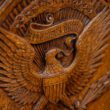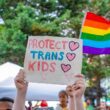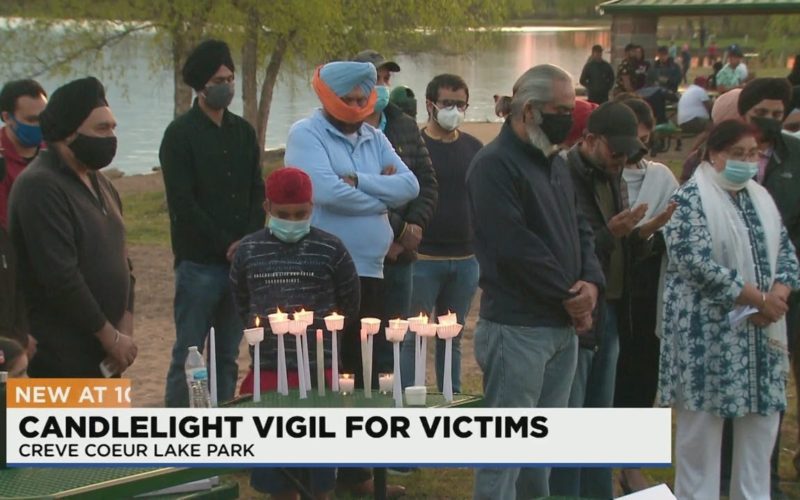Sign up here to receive The Yappie‘s weekly briefing on Asian American + Pacific Islander politics and support our work by making a donation.
The nation’s largest Sikh civil rights organization and Asian American activists are calling for an investigation into the massacre at a FedEx facility in Indianapolis to determine if bias played a role in the attack.
In a statement on Friday, the Sikh Coalition demanded an examination of "the possibility of bias” as a factor in the shooting, which left four members of the Sikh community dead.
“While we don’t yet know the motive of the shooter, he targeted a facility known to be heavily populated by Sikh employees, and the attack is traumatic for our community as we continue to face senseless violence,” the group said.
Four Sikhs were among the eight people killed in Thursday’s attack, the Washington Post reports, citing the president of the Sikh Satsang of Indianapolis. Law enforcement officials noted earlier that a “significant” number of employees at the targeted FedEx facility were members of the Sikh community.
Rep. Raja Krishnamoorthi (D-Ill.) and the Congressional Asian Pacific American Caucus, the entity that represents federal Asian American and Pacific Islander (AAPI) lawmakers, echoed Sikh advocates' calls for a probe.
The Sikh Coalition announced Saturday that it had participated in a call with the White House Office of Public Engagement and other federal officials, delivering several policy asks to the Biden administration—including the appointment of a Sikh American liaison, increased federal security funding for Sikh gurdwaras, and the closure of a loophole "that limits federal prosecution of mixed motive hate crimes."
In a message to AAPI stakeholders on Friday, the White House Office of Public Engagement said "our hearts go out to all impacted by the events in Indianapolis, especially to those in the Sikh community, South Asian community, and the larger AAPI community."
There are an estimated 500,000 to 700,000 Sikhs in the United States, according to advocacy groups. Roughly 8,000 Sikh Americans live in Indiana, the Sikh Coalition said.
"Incredibly frustrated over how the only opportunity many people get to learn about Sikhs is when we're targeted, surveilled, and murdered," New York City Council candidate Jaslin Kaur tweeted on Friday.
While the motive for Thursday’s rampage is unknown, the mass shooting comes one month after a white gunman opened fire on three Atlanta-area massage parlors, killing eight people, six of whom were Asian women.
The Indianapolis shooting also marks the fifth time in eight weeks the White House has ordered flags to fly at half-staff, per Axios.
The oldest South Asian group in the U.S., Sikhs have contributed to American society since they first arrived in the 1800s, building railroads, serving in the military, and pursuing innovation in industries ranging from fiber optics to peach growing, according to the Sikh Coalition.
They also have a rich history in U.S. politics. In 1956, Dalip Singh Saund became the first Sikh and Asian American elected to serve in Congress.
But Sikhs continue to face hate and find themselves particularly vulnerable to discrimination, having suffered xenophobic violence in the U.S. for over a century.
“The United States is unusual in this regard—in most other countries around the world, people tend to be far more familiar with the Sikh tradition,” the Sikh Coalition writes. The combination of Americans’ cultural/religious illiteracy and Sikhs’ “distinct visible identity” enables a hostility that has worsened in the post-9/11 context, with Americans viewing Sikhs as the enemy or agents of terrorism.
Just four days after the 9/11 terror attacks, a self-proclaimed “patriot” shot and killed Balbir Singh Sodhi, a turbaned Sikh, in broad daylight, claiming the murder was retaliation. In 2012, a gunman with links to neo-Nazi groups killed six worshippers at a Sikh temple in Oak Creek, Wisconsin. Six years later, two white supremacists jumped Surjit Malhi, hitting him with batons blow after blow, as he was erecting lawn signs in support of a local Republican politician.
“I felt sand being thrown in my eyes,” Malhi told the Guardian.
Discrimination bleeds through in less violent ways, too. Sikhs have had to contend with policies that target their religious practices, like head coverings. Airport security began “turban frisking” Sikh Americans after 9/11—the issue reached India, where a minister called on former President Barack Obama to end the policy in 2010.
Vice President Kamala Harris herself contributed to what many considered discrimination when she oversaw California’s criminal justice system. In 2011, Trilochan Oberoi filed a lawsuit after the then-attorney general maintained that religious beliefs do not trump policies banning prison guards from keeping beards. She argued that prison guards can’t properly wear gas masks if they have facial hair, as is required by the Sikh religion.
“Why should those who cannot shave for religious reasons be treated differently from those who cannot shave for medical reasons?” civil rights organizations said in a letter to Harris.
Though Harris never formally apologized, the lawsuit was a show of coalition-building led by Sikh Americans. Over the years, Sikhs have organized to protest discrimination and violence, barriers to citizenship, political issues in India—like farmers’ ongoing opposition to India’s recent legislative changes—and erasure as an American religious group. Some Sikhs also organized rallies in support of former President Donald Trump leading up to the election, while others showed up at his events in protest of anti-Muslim bigotry.
Last year, advocates successfully lobbied the U.S. Census Bureau to count Sikhs as a distinct population group within the “Asian” racial category rather than “Asian Indian” in the 2020 census.
The Sikh Coalition said Friday that the organization is in touch with community leaders, government, and law enforcement officials, and would provide updates as police investigate the shooting.
Harris said at a meeting with Japan's prime minister that “there is no question that this violence must end.”
“Yet again, we have families in our country that are grieving the loss of their family members because of gun violence,” she continued.
President Biden had been briefed on the situation, according to the White House.
This story has been updated.









